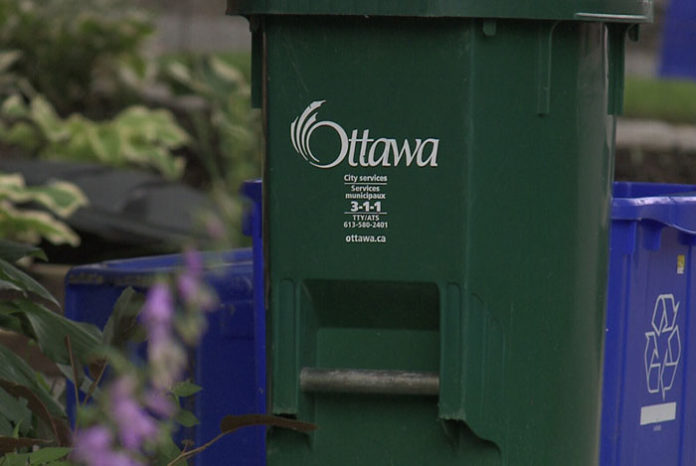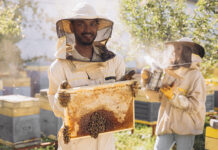
Ottawa residents have been using their green bin more during the COVID-19 pandemic, with a 15 percent increase in organic waste tossed into the bin last year.
A report for the Standing Committee on Environmental Protection, Water and Waste Management meeting on May 17 says there are “promising signs” policy changes and outreach efforts have been effective in encouraging organic waste recycling.
However, staff say it’s too soon to know whether the increase in participation is due to residents embracing the program or people spending more time at home during the pandemic.
| Olivier Felicio | May 9, 2021, 9:08 PM (12 hours ago) |
to me  |
Ottawa residents toss more organic waste into the green bin during COVID-19 pandemic
Ottawa residents have been using their green bin more during the COVID-19 pandemic, with a 15 percent increase in organic waste tossed into the bin last year.
A report for the Standing Committee on Environmental Protection, Water and Waste Management meeting on May 17 says there are “promising signs” policy changes and outreach efforts have been effective in encouraging organic waste recycling.
However, staff say it’s too soon to know whether the increase in participation is due to residents embracing the program or people spending more time at home during the pandemic.
In March 2018, Council approved a revised contract with Convertus (formerly Orgaworld) for Ottawa’s organic waste. The major changes included allowing plastic bag liners and dog waste in green bins starting in July 2019.
In 2020, a total of 85,249 tonnes of organic waste was tossed into the green bin, a 15 per cent increase in organic waste collected from 2019, when 89,343 tonnes or organic waste was collected. Residents placed 81,600 tonnes of organic waste into the green bin in 2017 and 2018.
Ottawa’s waste diversion rate from the landfill increased from 43 per cent in 2018 to 46 per cent in 2020.
Staff note there was an increase in tonnage in all waste streams since the start of the COVID-19 pandemic as many residents started to work from and spent more time at home.
“The City has seen a volumetric shift in waste from the industrial, commercial and institutional sector to the residential sector with more residents working remotely and disposing of more waste at home instead of in the workplace,” said the report.
“Therefore, the data outlined in this report should be viewed as a snapshot in time that includes a significant cultural and social shift in waste generation and disposal that may or may not be temporary, so is not necessarily indicative of continuing trends.”
The report also looked at February specifically, with staff noting the monthly tonnage tends to be “most representative of household organic waste” because residents put the minimal leaf and yard waste in the green bin during that time of the year.
The city saw an 18.7 percent increase in tonnage in February 2020 over February 2019 and a further 21 percent increase in February 2021.
“Because the pandemic and stay-at-home measures continue in 2021, it is too early to draw any conclusions about the pandemic’s impact on behaviour and participation and whether it is temporary or permanent,” said the city report. “However, the pandemic alone is not expected to have caused the increase in participation.”
The city of Ottawa says 58 percent of households placed a green bin at the curb at least once in 2020, up from 50 percent in 2018.
A survey commissioned by the city found that 36 percent of residents reported using the green bin more during the pandemic because they eat and cook at home more. Also, 30 percent of residents said they were using the green bin more since the program enhancements, including allowing plastic bag liners.
Source: CTV news












